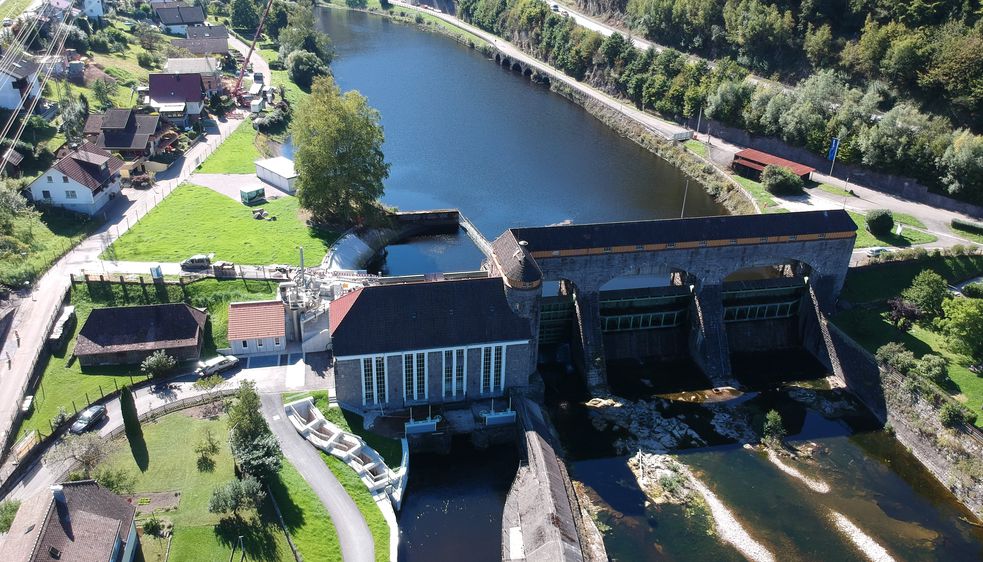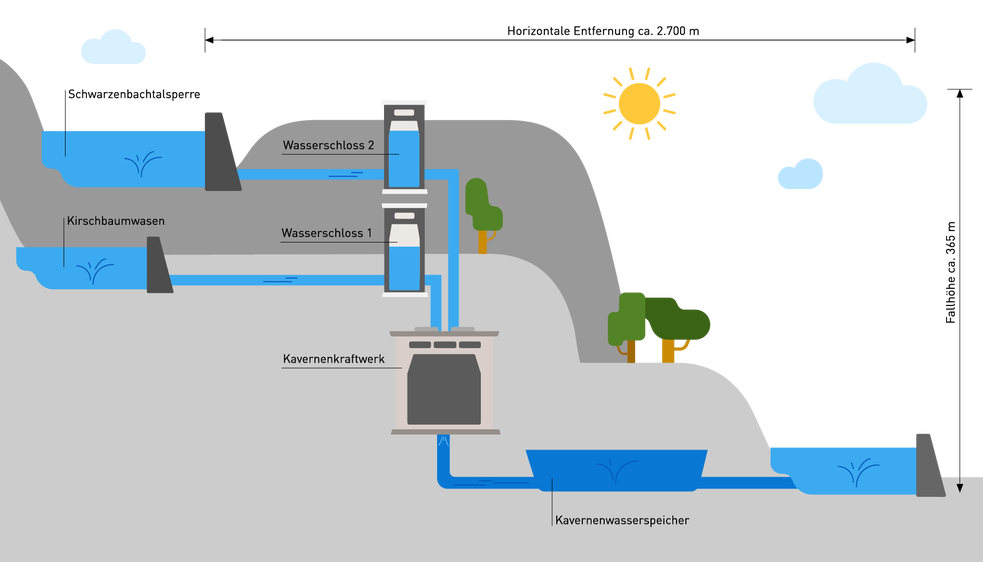
Energy firm EnBW has been given the go-ahead to start work on a pumped hydro energy storage (PHES) project in Germany.
The Baden-Württemberg-headquartered firm will invest €280 million (US$300 million) in upgrading the Rudolf Fettweis hydropower plant in Forbach into a modern PHES plant.
Enjoy 12 months of exclusive analysis
- Regular insight and analysis of the industry’s biggest developments
- In-depth interviews with the industry’s leading figures
- Annual digital subscription to the PV Tech Power journal
- Discounts on Solar Media’s portfolio of events, in-person and virtual
The Karlsruhe regional administration issued the approval notice on 1 March, and construction will start this year with completion expected by the end of 2027.
Karlsruhe administration president Sylvia M. Felder said: “I am pleased that the Forbach hydropower site is being retained and transformed into to a dedicated pumped storage power plant. This is a significant contribution to the success of the energy transition. Pumped storage power plants represent a vital means of energy storage and are indispensable for renewable energies.”
The main aspect of the new project is the construction of a new powerhouse integrated into the hillside to accommodate the new plant technology. This will include a new turbine for the Schwarzenbach power plant, with 54MW discharge power capability and 57MW of pumping power, as well as three Francis turbines for the Murg plant totalling 23MW.
The existing Forbach equalisation basin will be expanded with a new cavern water reservoir in the adjacent hillside to serve as the lower reservoir for the future pumped storage power plant. This will collect water channeled from the upper reservoir (the Schwarzenbach dam) to drive the turbines and generate electricity.
PHES plants account for the vast majority of installed energy storage capacity by MWh today, but new projects are relatively few and far between because of the nature of the technology.
Last month conglomerate GE announced it would provide six 37MW turbines for a plant in Gran Canaria, while in March £100 million (US$124.4 million) was put into a new project in Scotland and a final application for an 8GWh project in Nevada was submitted.
See a German-language diagram of how the new PHES plant in Germany will work below.







